StringOfChar(A: AnsiChar, count) uses FillChar under the hood.
You can use the following code to fix the issue:
(*******************************************************
System.FastSystem
A fast drop-in addition to speed up function in system.pas
It should compile and run in XE2 and beyond.
Alpha version 0.5, fully tested in Win64
(c) Copyright 2016 J. Bontes
This Source Code Form is subject to the terms of the
Mozilla Public License, v. 2.0.
If a copy of the MPL was not distributed with this file,
You can obtain one at http://mozilla.org/MPL/2.0/.
********************************************************
FillChar code is an altered version FillCharsse2 SynCommons.pas
which is part of Synopse framework by Arnaud Bouchez
********************************************************
Changelog
0.5 Initial version:
********************************************************)
unit FastSystem;
interface
procedure FillChar(var Dest; Count: NativeInt; Value: ansichar); inline; overload;
procedure FillChar(var Dest; Count: NativeInt; Value: Byte); overload;
procedure FillMemory(Destination: Pointer; Length: NativeUInt; Fill: Byte); inline;
{$EXTERNALSYM FillMemory}
procedure ZeroMemory(Destination: Pointer; Length: NativeUInt); inline;
{$EXTERNALSYM ZeroMemory}
implementation
procedure FillChar(var Dest; Count: NativeInt; Value: ansichar); inline; overload;
begin
FillChar(Dest, Count, byte(Value));
end;
procedure FillMemory(Destination: Pointer; Length: NativeUInt; Fill: Byte);
begin
FillChar(Destination^, Length, Fill);
end;
procedure ZeroMemory(Destination: Pointer; Length: NativeUInt); inline;
begin
FillChar(Destination^, Length, 0);
end;
//This code is 3x faster than System.FillChar on x64.
{$ifdef CPUX64}
procedure FillChar(var Dest; Count: NativeInt; Value: Byte);
//rcx = dest
//rdx=count
//r8b=value
asm
.noframe
.align 16
movzx r8,r8b //There's no need to optimize for count <= 3
mov rax,$0101010101010101
mov r9d,edx
imul rax,r8 //fill rax with value.
cmp rdx,59 //Use simple code for small blocks.
jl @Below32
@Above32: mov r11,rcx
mov r8b,7 //code shrink to help alignment.
lea r9,[rcx+rdx] //r9=end of array
sub rdx,8
rep mov [rcx],rax
add rcx,8
and r11,r8 //and 7 See if dest is aligned
jz @tail
@NotAligned: xor rcx,r11 //align dest
lea rdx,[rdx+r11]
@tail: test r9,r8 //and 7 is tail aligned?
jz @alignOK
@tailwrite: mov [r9-8],rax //no, we need to do a tail write
and r9,r8 //and 7
sub rdx,r9 //dec(count, tailcount)
@alignOK: mov r10,rdx
and edx,(32+16+8) //count the partial iterations of the loop
mov r8b,64 //code shrink to help alignment.
mov r9,rdx
jz @Initloop64
@partialloop: shr r9,1 //every instruction is 4 bytes
lea r11,[rip + @partial +(4*7)] //start at the end of the loop
sub r11,r9 //step back as needed
add rcx,rdx //add the partial loop count to dest
cmp r10,r8 //do we need to do more loops?
jmp r11 //do a partial loop
@Initloop64: shr r10,6 //any work left?
jz @done //no, return
mov rdx,r10
shr r10,(19-6) //use non-temporal move for > 512kb
jnz @InitFillHuge
@Doloop64: add rcx,r8
dec edx
mov [rcx-64+00H],rax
mov [rcx-64+08H],rax
mov [rcx-64+10H],rax
mov [rcx-64+18H],rax
mov [rcx-64+20H],rax
mov [rcx-64+28H],rax
mov [rcx-64+30H],rax
mov [rcx-64+38H],rax
jnz @DoLoop64
@done: rep ret
//db $66,$66,$0f,$1f,$44,$00,$00 //nop7
@partial: mov [rcx-64+08H],rax
mov [rcx-64+10H],rax
mov [rcx-64+18H],rax
mov [rcx-64+20H],rax
mov [rcx-64+28H],rax
mov [rcx-64+30H],rax
mov [rcx-64+38H],rax
jge @Initloop64 //are we done with all loops?
rep ret
db $0F,$1F,$40,$00
@InitFillHuge:
@FillHuge: add rcx,r8
dec rdx
db $48,$0F,$C3,$41,$C0 // movnti [rcx-64+00H],rax
db $48,$0F,$C3,$41,$C8 // movnti [rcx-64+08H],rax
db $48,$0F,$C3,$41,$D0 // movnti [rcx-64+10H],rax
db $48,$0F,$C3,$41,$D8 // movnti [rcx-64+18H],rax
db $48,$0F,$C3,$41,$E0 // movnti [rcx-64+20H],rax
db $48,$0F,$C3,$41,$E8 // movnti [rcx-64+28H],rax
db $48,$0F,$C3,$41,$F0 // movnti [rcx-64+30H],rax
db $48,$0F,$C3,$41,$F8 // movnti [rcx-64+38H],rax
jnz @FillHuge
@donefillhuge:mfence
rep ret
db $0F,$1F,$44,$00,$00 //db $0F,$1F,$40,$00
@Below32: and r9d,not(3)
jz @SizeIs3
@FillTail: sub edx,4
lea r10,[rip + @SmallFill + (15*4)]
sub r10,r9
jmp r10
@SmallFill: rep mov [rcx+56], eax
rep mov [rcx+52], eax
rep mov [rcx+48], eax
rep mov [rcx+44], eax
rep mov [rcx+40], eax
rep mov [rcx+36], eax
rep mov [rcx+32], eax
rep mov [rcx+28], eax
rep mov [rcx+24], eax
rep mov [rcx+20], eax
rep mov [rcx+16], eax
rep mov [rcx+12], eax
rep mov [rcx+08], eax
rep mov [rcx+04], eax
mov [rcx],eax
@Fallthough: mov [rcx+rdx],eax //unaligned write to fix up tail
rep ret
@SizeIs3: shl edx,2 //r9 <= 3 r9*4
lea r10,[rip + @do3 + (4*3)]
sub r10,rdx
jmp r10
@do3: rep mov [rcx+2],al
@do2: mov [rcx],ax
ret
@do1: mov [rcx],al
rep ret
@do0: rep ret
end;
{$endif}
The easiest way to fix your issue is to Download Mormot and include SynCommon.pas into your project. This will patch System.FillChar to the above code and include a couple of other performance improvements as well.
Note that you don't need all of Mormot, just SynCommons by itself.



